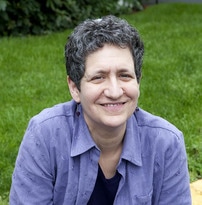
by Rabbi Toba Spitzer and Rabbi Barbara Penzner
Reprinted from the Jewish Journal
Who would believe that one tomato can change so many lives?
Earlier this month, Ahold USA, parent company of Stop & Shop, has become the first major grocery chain to enter into the Fair Food Program of the Coalition of Immokalee Workers (CIW), a groundbreaking human rights campaign started by the migrant tomato pickers of Florida. They have agreed to strict human rights provisions — devised and demanded by the farmworkers themselves — to protect tomato-pickers from exploitation in the fields, including sexual harassment, violence, and wage theft. Ahold will also pay the workers an extra penny a pound for the tomatoes they pick, raising their wages above sub-poverty levels and tangibly improving their standard of living.
We’re excited to see our hometown grocery store making such a critical commitment to the human rights of the workers who pick their tomatoes. Stop & Shop was founded in Boston in 1914 by a Jewish family, the ancestors of state Treasurer Deb Goldberg. In the late 1980s, the chain was acquired in a leveraged buyout and in 1995, purchased by multinational Ahold. Before the buyout, Av and Carol Goldberg ran Stop & Shop like a family business. The agreement with CIW harkens back to their enduring legacy of caring for their workers, their suppliers and their customers.
We met with the CIW at their headquarters in Florida. T’ruah, The Rabbinic Call for Human Rights, sponsored a trip for rabbis to learn firsthand from the CIW about their advocacy and why the Fair Food Program was different — and more successful — than traditional corporate social responsibility efforts, which have failed to meaningfully protect farmworkers from abuse or sustainably change working conditions. From these men and women, immigrants from Central America and Haiti who do the work of harvesting our food, we learned that slavery in America is not a thing of the distant past. Until very recently, there were documented cases of migrant farmworkers held against their will, beaten and sexually assaulted, and denied wages in the Florida tomato fields. But thanks to the CIW and the Fair Food Campaign it has been waging for two decades, that is changing.
Because of Ahold’s historic agreement, joining Walmart, Whole Foods, Trader Joe’s, and a majority of fast food chains, we can be assured that when we shop at Stop & Shop the Florida tomatoes for sale have been grown on farms that comply with basic standards of worker safety and fairness, that the men and women who pick our tomatoes will receive a penny more per pound of tomatoes picked each day (which can almost double their pay over the course of a season), and that CIW’s award-winning Fair Food Program will grow stronger.
In Boston area communities, church- and synagogue-goers stepped up to encourage the supermarkets where we shop every day to live up to their professed corporate values and commit to farmworker rights. Driven by the tenets of their faiths, these local activists organized delegations and protests aimed both at Ahold and at Trader Joe’s (who joined in 2012) to demand their participation in the Fair Food Program. These grassroots efforts have bolstered the power of the CIW. In the Jewish cycle of reading the Torah, the first five books of the Hebrew Bible, we are currently engaged with the book of Deuteronomy. It is here that we have some of the first documented labor laws: a mandate to farmers to not oppress the poorest workers; to pay a day laborer his wage on the day that he earns it; to provide sustainable working conditions for workers in the fields. In the U.S. today, migrant farm workers are denied some of the basic labor rights guaranteed to others, like a minimum wage or the right to organize. Yet the CIW has found a way, by building coalitions with consumers, with students and people of faith, to gain the protections that so many of us take for granted.
Having a major corporation like Ahold listen and respond to them means fair treatment is a practice we can all be proud to support.
Rabbi Toba Spitzer is spiritual leader of Congregation Dorshei Tzedek, West Newton, Vice President of the Massachusetts Board of Rabbis, and a member of the board of T’ruah: The Rabbinic Call for Human Rights.
Rabbi Barbara Penzner is the spiritual leader of Temple Hillel B’nai Torah, West Roxbury, former President of the Massachusetts Board of Rabbis, and co-chair of the New England Jewish Labor Committee.
This piece is the second in a JLC New England blog series From Passion to Action.


 RSS Feed
RSS Feed
